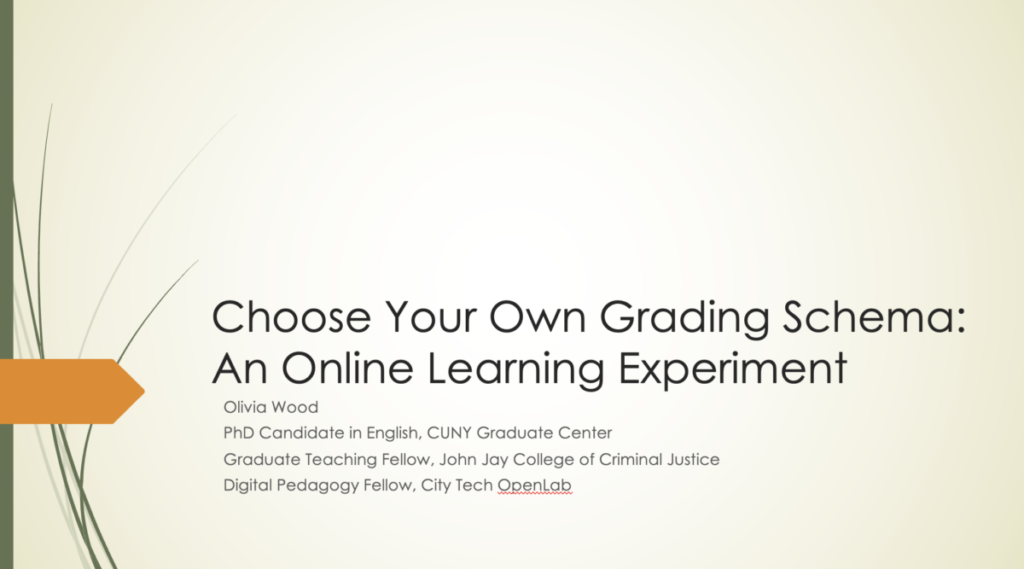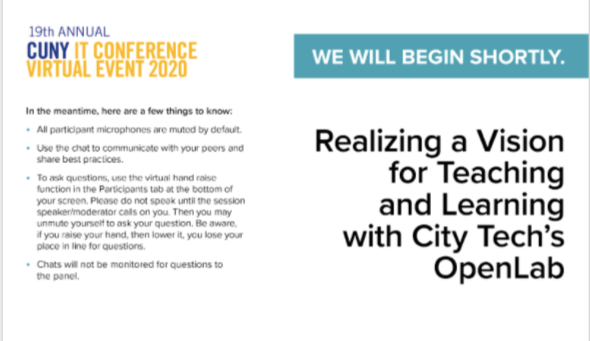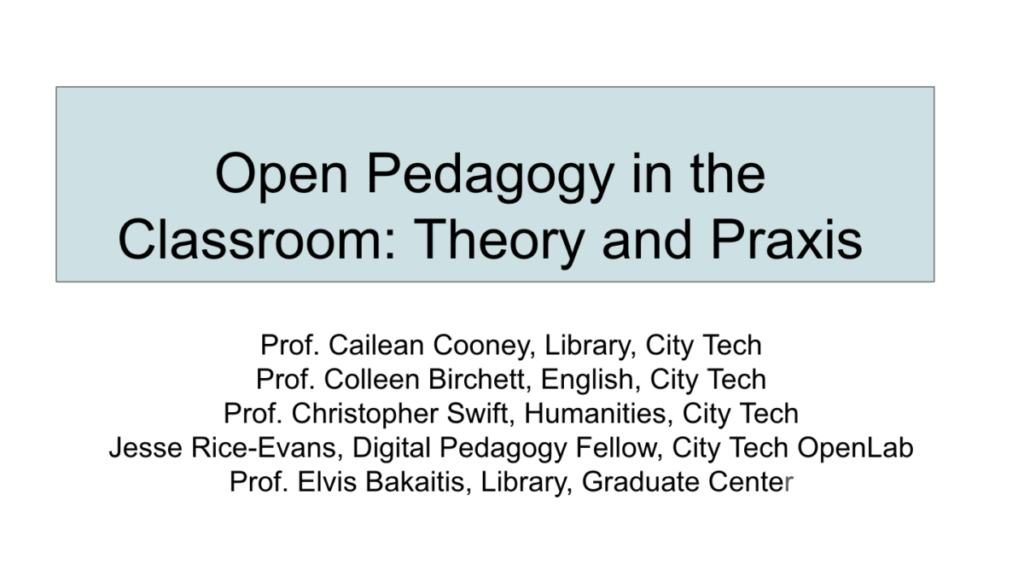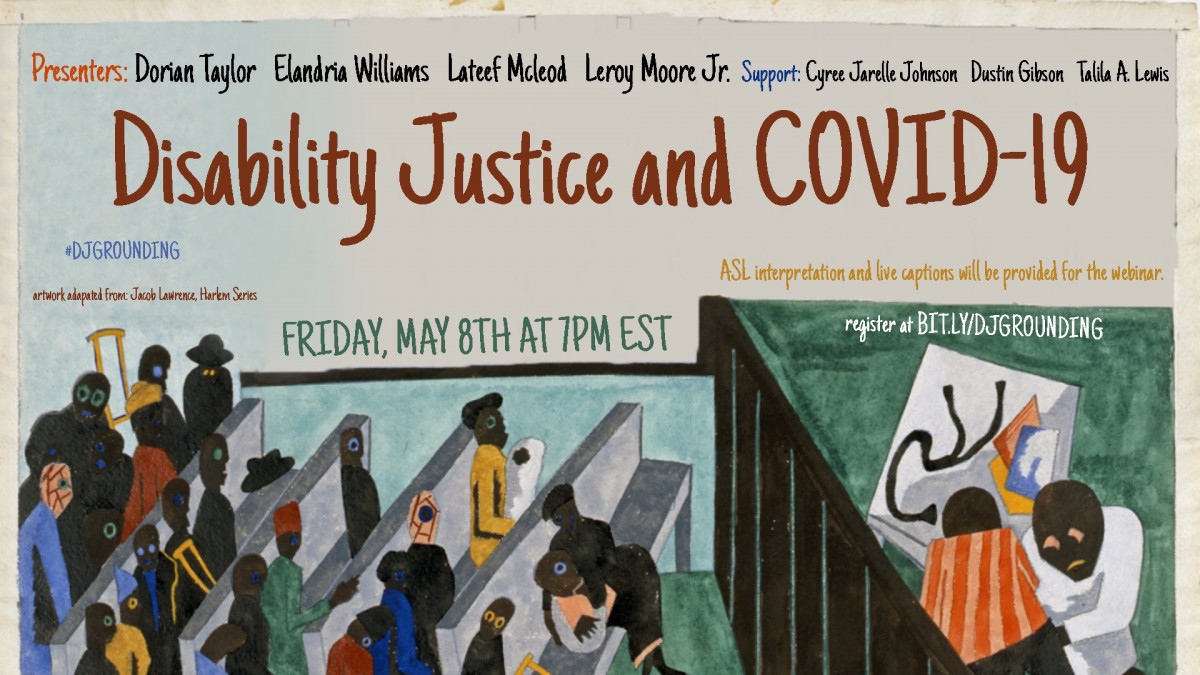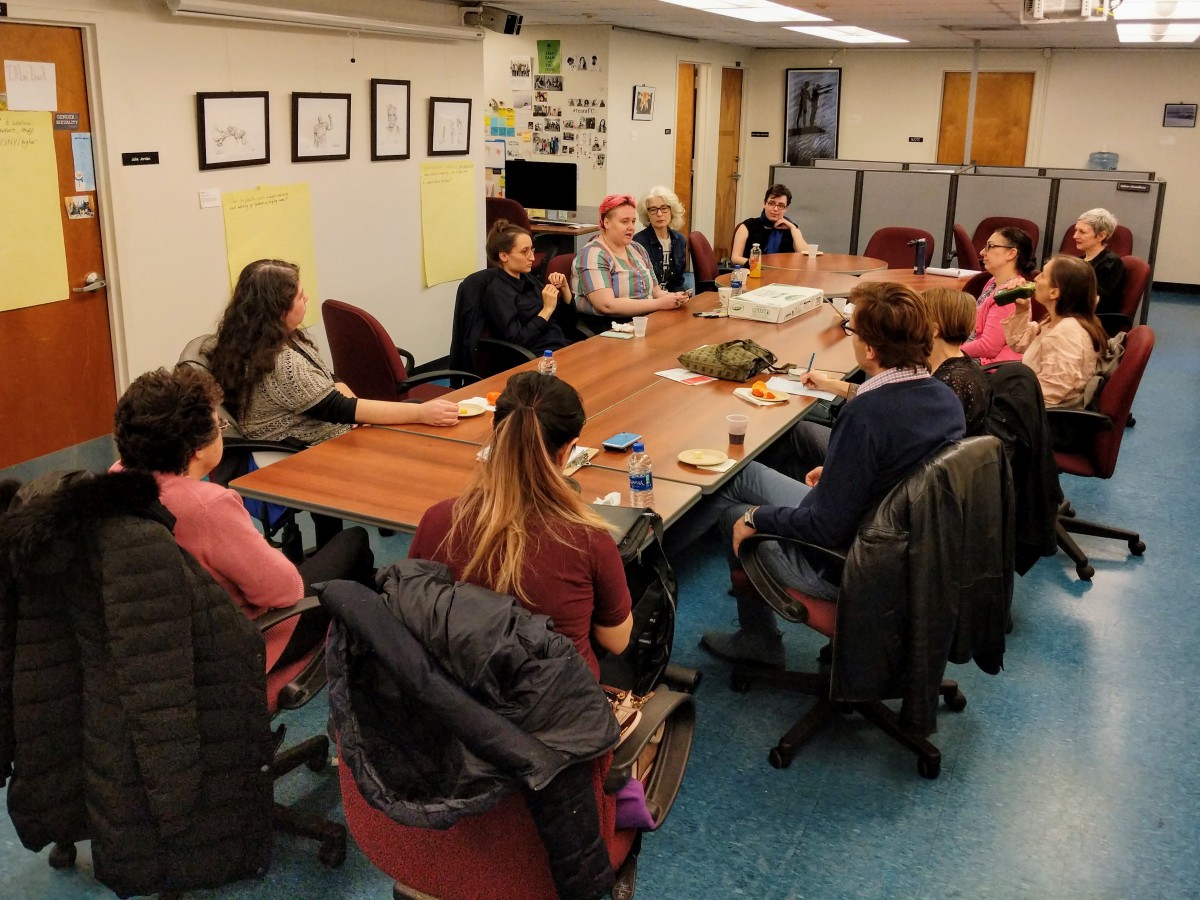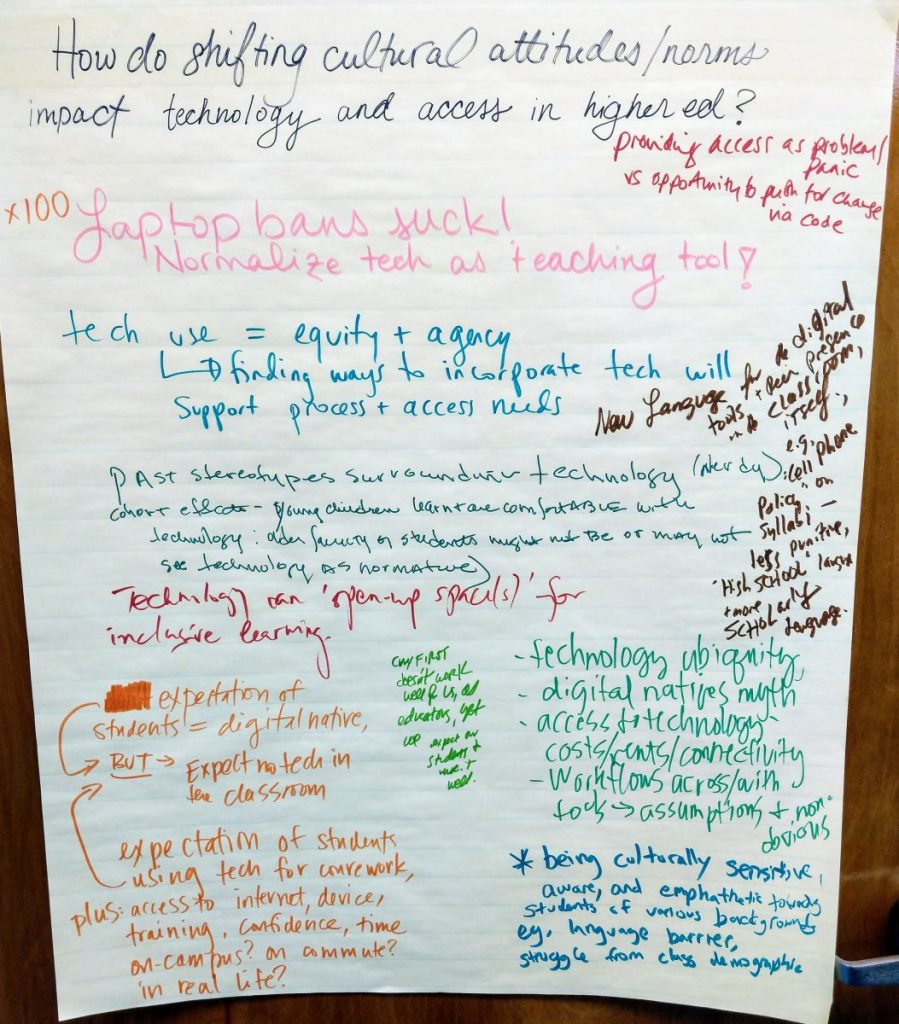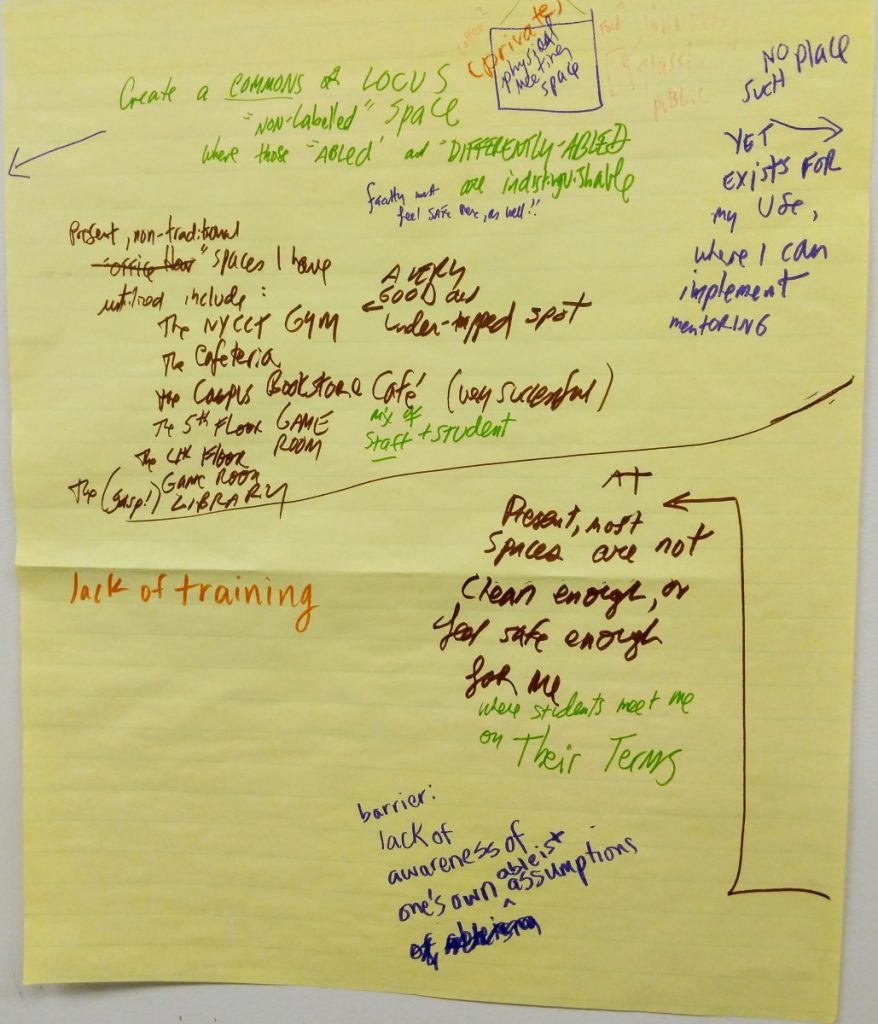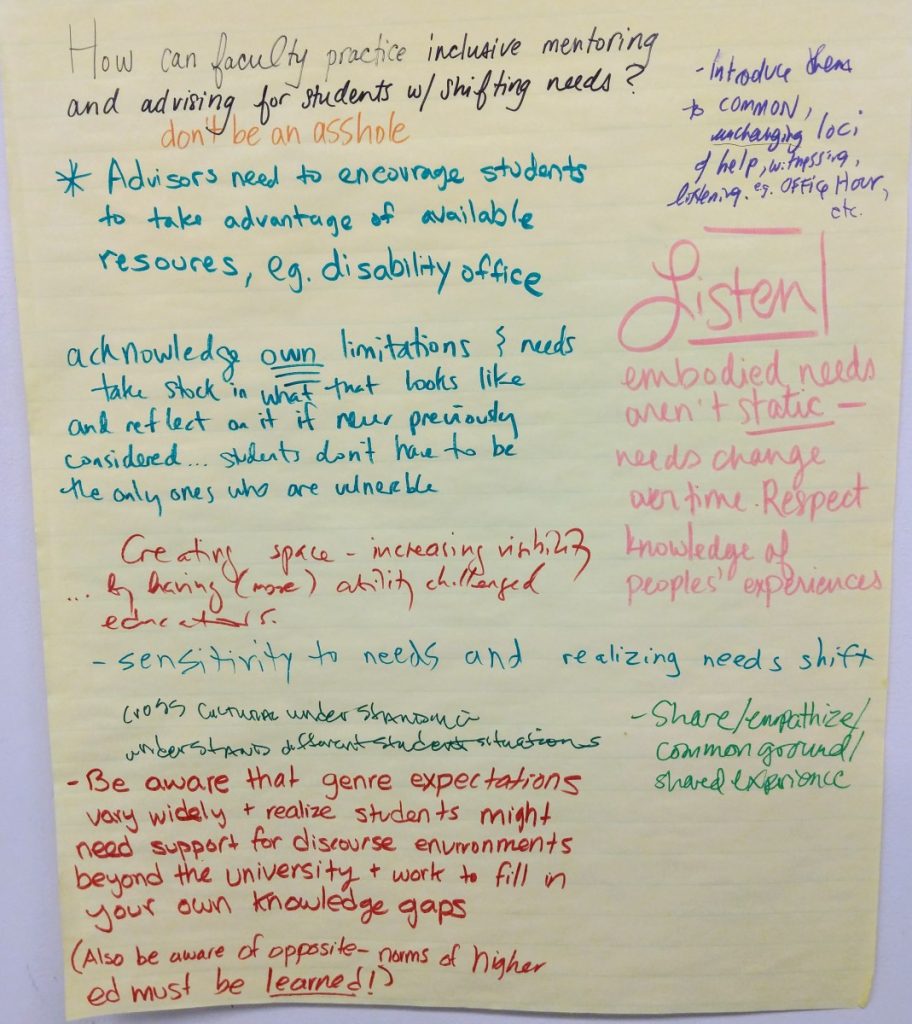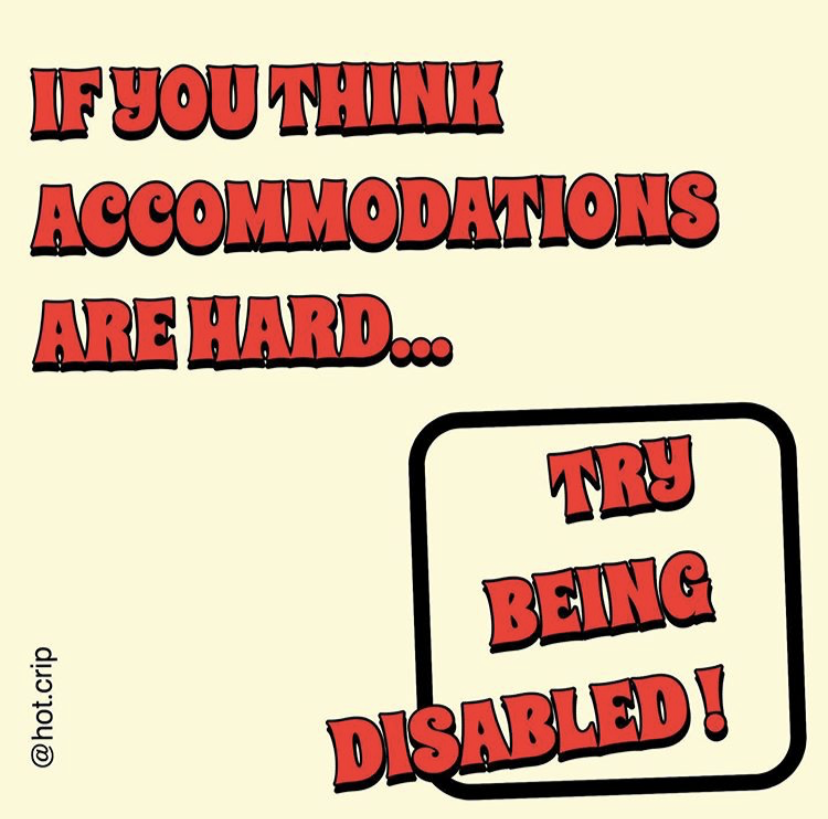On Friday, October 30, the OpenLab team along with City Tech librarian Cailean Cooney hosted a digital workshop as part of the 2020 CUE Conference and CUNY OER Showcase.
This conference was originally planned for March 2020, but was rescheduled due to the pandemic. Because so much about our teaching and learning environment has changed since then, we adapted our February Open Pedagogy session to talk with folks about access and accessibility in our current circumstances.
Below are our discussion questions- talked through together via Google Docs instead of on chart paper!- and some highlights from participant comments.
1. What connotations do you have with the word “accommodation”?
“people shouldn’t be “accommodated for,’ but instead design should consider the full range of human experience / abilities / dispositions”
“an accommodation is a place to stay…it’s a place at least comfortable, ideally welcoming and friendly, for all of us.”
“Requires medical documentation, submission to disability office, approval and recommended “reasonable accommodation” for traditional learning styles”
“Flexibility, willingness to make things easier and accessible.”
2. How do OERs help us address equity and access? What does the platform you use to share open course materials with students have to do with access?
“if students can’t get to materials from their available devices, this is a huge barrier to entry! mobile/tablet access is how many CUNY students (and honestly fac/staff) use the web!”
“The platform is critical and should not be a secondary consideration. Using proprietary platforms to share open content is (IMO) problematic, and is a reason I’m happy that open solutions like openlab exist.”
“Our LMS on campus simply can’t be used on a mobile phone even though the vast majority of my students are using mobile phones”
3. How does our current sociocultural situation affect how we think about access in higher education? What new questions or concerns have come up around using technology to facilitate access?
“Access to … food, health care, child care, technology, space to work– it’s all part of the mix. We have to think of “access” in this much larger context.”
“I’m thinking much more about how to take time into account in course design, course expectations for students, and for faculty. For instance, the time it will take to do required readings?”
“I’ve most of all been thinking about how to make my sites accessible to those with poor internet access. Post-COVID, I realize that I need to redesign sites checking for bandwidth, loadability. I tested my sites with Google Page Speed, and although they seem fast on my internet, they clearly are not easily loadable.
“I’ve been using more radical course policies than I have been brave enough to try in the past. I don’t want to go back, even after the pandemic. The current situation is just a more heightened/visible version of a situation that totally already existed.”
“FLEXIBLE DUE DATES”
“The technology needs to be taught, not just assume everyone knows how.”
4. What are some current strategies you have, or would like to try, to make course content accessible / useful / usable to all students, with shifting and complex needs?
“Reflection-based grading: students respond to their own work from a reflective perspective, analyze what they struggled with and did great at, and assign themselves grades based on their work towards each project in the first-year writing/whatever course. (Read Jesse Stommel on ungrading!)”
“Check-ins with students”
Lastly, some resources that might be useful in considering accessibility strategies:



